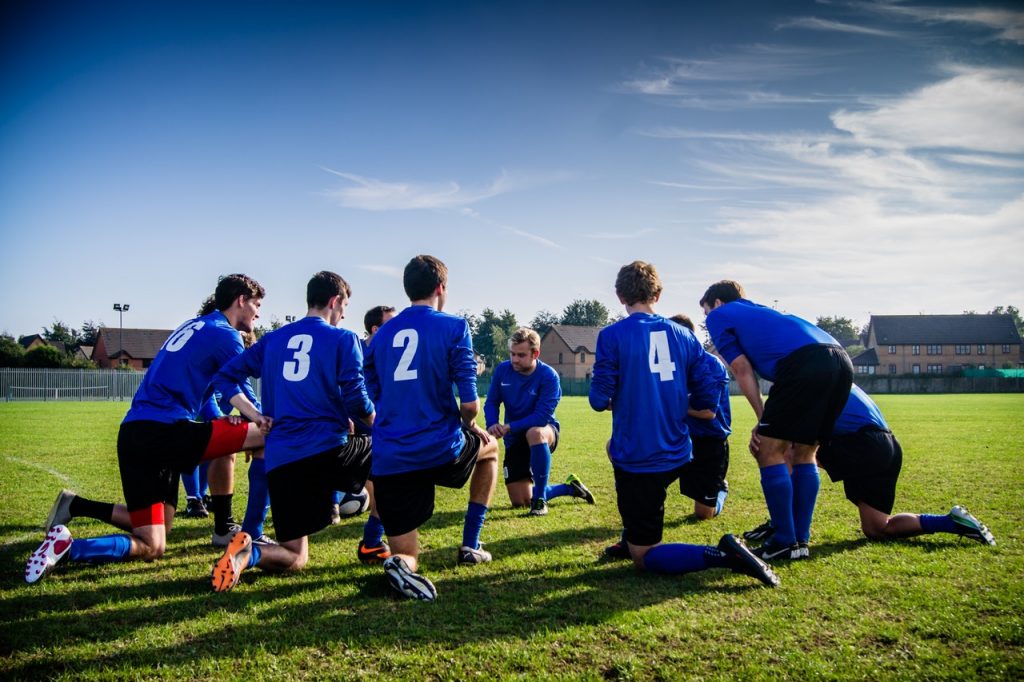Team sports are all about a lot more than purely the health advantages. When you see a group of kids all dressed in matching basketball shirts bonding over pizza or out in the community it becomes obvious how important sport is. This is particularly so when group sports activities are integrated into a young person’s lifestyle. From educational advantages to decision making to psychological health, here are a couple of ways athletes may gain from being a part of a group game.
Engaged Athletically, Engaged Academically
Studies have shown a direct correlation between physical exercise and academic performance. A University of Kansas research taking a look at the performance of pupils in grades 9 to 12 revealed that more than 97 percent of pupil athletes graduated high school, 10 percent higher than those pupils that had never engaged in sports. Athletes were also proven to possess better G.P.A. results than non-athletes.
This may have to do with the increased cognitive ability that comes in playing sports. Physical action naturally increases blood circulation to the brain and triggers endorphins, chemicals which are released when you’re exercising. Endorphins can affect your disposition and work functionality, meaning athletes might be more prepared and capable of handling that next huge issue.
Team sports may also assist with psychological improvement. Research published by the Canadian Fitness and Lifestyle Research Institute says that exercise may cause a special condition of short-term comfort. That comfort can encourage greater focus, better memory, and improved creativity, better problem solving, and also a better mood — all advantages that will extend in the classroom.
Establish Positive Role Models
Team athletes are constantly working using a slate of additional people, lots of whom could become positive role models on the way. Team sports nurture mentorship between players that are older and younger players, athletes and coaches, and much more.
Trainers in particular can play an essential role in a young athlete’s life. Players that have favourable sports mentors when they are young are also more inclined to look for effective role models during their lifetime.
Encourages Soft Skills Development
Soft skills are personal characteristics that allow individuals to build positive social connections. Team sports are an exceptional source of soft skills development, since they enable athletes to develop within a supportive atmosphere.
Here are only a few of those soft skills fostered through group Sports:
Communication Abilities
While it may not be as obvious as sitting down and talking during a team project, group sports require a great deal of communicating — both spoken and unspoken. Communication skills are crucial in maintaining a working sports group, whether it’s listening into locker room pep talk, picking up on nonverbal cues contributed by other gamers, or even expressing a notion through a post-game debrief.
Decisive Action
Sports plays happen quickly, and athletes build the abilities needed to create effective snap decisions. When it is a basketball player deciding to steal or a football player realizing his very best move would be to pass to a teammate for help, athletes understand crucial decision-making abilities which will help them both throughout and after game time.
Teamwork
This is a clear one. Teamwork Is about collaborating with other people to reach a frequent aim. The varied pairing of characters and situations will help your athlete become elastic, persistent, and individual. Team sports also instruct a feeling of individual and group responsibility. The emphasis on team is fostered through all the surrounding factors of group sports. From the matching basketball hoodies to the group chats on digital platforms, teamwork is embedded into group sports.
Time Management
Necessity requires that athletes understand valuable time management abilities, otherwise they’d never have the ability to keep up with education and work. Successful time management preparation is part of why a recent article published by Fast Company asserts employers should look at selecting a former student athlete.
Construct Self-Esteem and a Feeling of Community
Team sports are believed to reinforce the five C’s: competence, confidence, connections, character, and caring. In the centre of the is self-esteem — a heightened feeling of self as a consequence of greater social interactions, stronger connections, and greater academic performance.
Team sports provide athletes with a pure community. A report from states that childhood who play sports have higher degrees of social support, which the feeling of community created by teammates, coaches, and relatives incubates the ideal setting for crucial self-esteem development. In conclusion, the chance to take part in team sports supplies athletes with invaluable skills which will take them outside the area, pitch, as well as courtroom.
